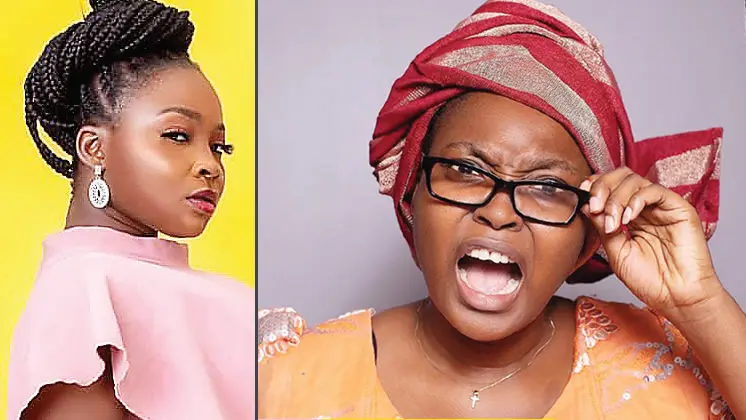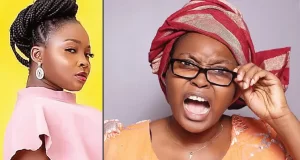
Mummy Wa
Popular content creator Mummy Wa has come out to speak about the challenges that come with being stereotyped in the Nollywood industry.
She recently had her say during an interview with Pot-Pourri, and fans have been reacting.
According to her, she is more than ready to show a different side to her if given the opportunity, even though Nigerians really love her comedic persona as Mummy Wa on their screens.
The skitmaker added that she never fails to remind people that she is an actress who can do justice to any character she is asked to portray.
Her words, “Every time I go on set, it’s ‘Please give us that Mummy Wa vibe.And I understand it, the character connects deeply with people. But I always remind them that while I love Mummy Wa, I’m also an actor with range. So, I’ll give you that Mummy Wa magic if the story calls for it, but I’m also open to roles that show other sides of me. Even Mummy Wa sef no be only comedy she sabi, sometimes she get depth.
It’s a tricky one. Fans follow you because you make them happy, but they forget that you’re human too.I think it’s important to be honest sometimes, to show that even the people who make you laugh also feel pain, confusion, or pressure. But we don’t owe anyone our pain. Vulnerability is a choice, not an obligation. When I share, I do it because I want someone to feel seen, not because I feel pressured. Na balance we dey find , not oversharing, not pretending.”
WOW.
Nollywood is a sobriquet that originally referred to the Nigerian film industry. The origin of the term dates back to the early 2000s, traced to an article in The New York Times. Due to the history of evolving meanings and contexts, there is no clear or agreed-upon definition for the term, which has made it a subject to several controversies.
The origin of the term “Nollywood” remains unclear; Jonathan Haynes traced the earliest usage of the word to a 2002 article by Matt Steinglass in the New York Times, where it was used to describe Nigerian cinema.
Charles Igwe noted that Norimitsu Onishi also used the name in a September 2002 article he wrote for the New York Times. The term continues to be used in the media to refer to the Nigerian film industry, with its definition later assumed to be a portmanteau of the words “Nigeria” and “Hollywood”, the American major film hub.
Film-making in Nigeria is divided largely along regional, and marginally ethnic and religious lines. Thus, there are distinct film industries – each seeking to portray the concern of the particular section and ethnicity it represents. However, there is the English-language film industry which is a melting pot for filmmaking and filmmakers from most of the regional industries.
 NaijaVibe NaijaVibe | Download Latest Nigerian Music & Mp3s
NaijaVibe NaijaVibe | Download Latest Nigerian Music & Mp3s


